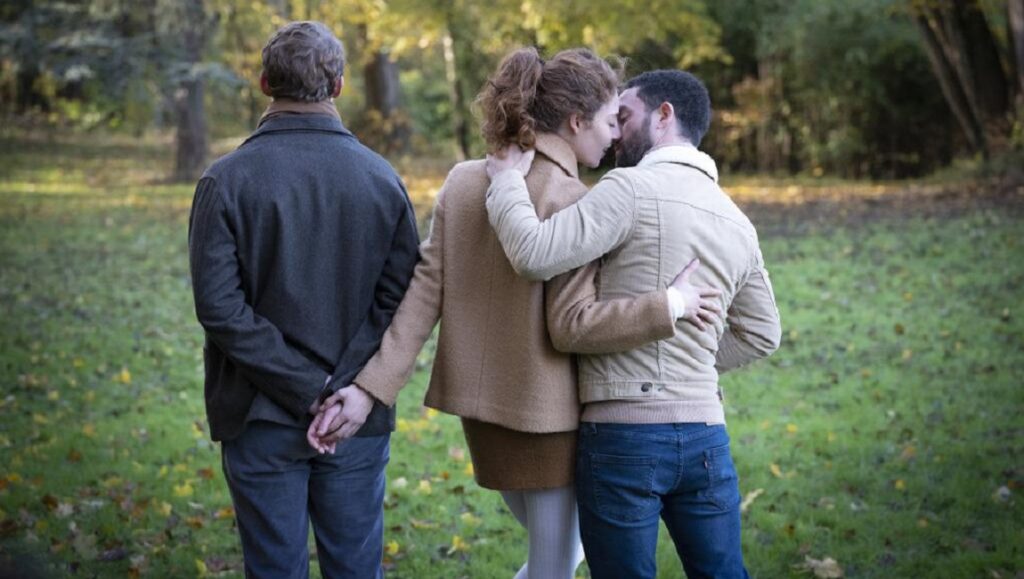Like several films in the Rendez-Vous with French Cinema lineup, Love Affair(s) is a title that was meant to premiere at Cannes 2020, under “The Newcomers” banner (meant to highlight directors of note making their Cannes debuts). Also like other Rendez-Vous offerings, Love Affair(s) is clearly indebted to the work of Eric Rohmer (popular over on the Berlinale slate as well), this film playing around in similar philosophical territory — explorations of love, fidelity, and fate. Though of course, director Emmanuel Mouret is not a simple imitator, but indeed an auteur of some note, critically acclaimed in his home country (this film ended up at #5 on Cahiers du Cinéma’s 2020 top 10, and racked up 13 César nominations) for romantic comedies and dramas (of a Rohmerian texture, naturally) where he often takes the lead role. This seems to be a trademark that Mouret is moving away from at this point in his career — Love Affair(s) is his 11th feature — opting to remain behind the camera as writer/director for both this latest effort and his 2019 period comedy, Lady J. Yet, as implied, Love Affair(s) is otherwise very much in keeping with the filmography Mouret has built for himself thus far — a heady, branching romantic narrative attempting to determine to what degree love is a matter of fate, and to what degree we can consciously will it.
The film’s French title (as translated into English) is The Things We Say, the Things We Do; more poetic than the one chosen for U.S. release perhaps, but one that, in its wispiness, belies the rigorousness of the film’s structure and plotting. The parenthetical of this title works as a cute nod to the complex, looping structure of Love Affair(s)’ screenplay, which begins with a fairly clean dynamic at its center, and ends up complicated through the lead character’s extended flashbacks and tales of heartbreak.
Maxime (Niels Schnieder) and Daphné (Camélia Jordana) are two acquaintances on vacation together, brought to the same beach home by François (Vincent Macaigne), the former’s older cousin and the father of Daphné’s still-gestating baby. François plans on arriving later, so these two end up having ample time to commiserate over their romantic woes, the film transitioning quietly in and out these reminisces, each one drawing new characters and conflict into an increasingly convoluted narrative schema. The memories of Maxime and Daphné also tend to unearth surprising links and parallels between the two, powerful coincidences that put their individual romantic philosophies to the test. The film eventually introduces François too, who brings in details of his own romantic history, which is, of course, also laden with new characters and signs from the cosmos; certainly a daring formal challenge to take on. But there’s no doubt that Mouret maintains his balance underneath the weight of this dense script, the zany plotting providing him with a momentum befitting the intensity of the film’s existential probing. Love Affair(s) is certainly of a familiar French cinematic tradition, but it’s one that Mouret is able to expand upon, crafting a film that carefully considers emotional tumult and embraces the chaos and fickleness of human intimacy.
Published as part of Rendez-Vous with French Cinema 2021 — Dispatch 1.


Comments are closed.